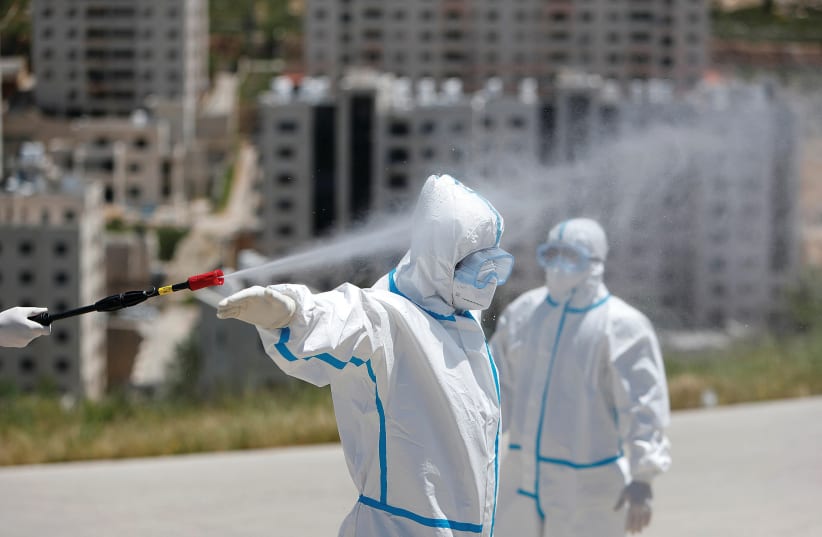The Knesset approved in second and third reading on Tuesday night the novel coronavirus-era emergency powers bill, the emergency powers will come into effect on Wednesday at 6 a.m. There were ten MKs present during the readings, Army radio reported on Tuesday night.A decision was made to extend most of the corona-era emergency powers granted to the state for an additional 45 days pending ongoing consideration of a new bill to permanently set the balance between civil liberties and coronavirus-related enforcement powers. The Knesset Constitution, Law and Justice Committee made a few amendments to the bill before it was submitted to the Knesset.
The committee decided to cancel the rule regarding prison sentences required by law for violating coronavirus regulations, such as not wearing a mask or violating quarantine regulations.
Additionally, it was agreed to put an end to the special authority given to police during the coronavirus-era allowing them to search citizens' homes with a warrant to check if they quarantining as required.
Further amendments were also added to the bill, including the regulation allowing relevant officials with authority to enforce the coronavirus regulations.
The committee made a request regarding the authority of police to disband gatherings, such as protests. Disbanding will only be allowed if there is no interference with holding a protest that adheres to public health orders.
The compromise of allowing most emergency powers to continue, while stripping out the special coronavirus-era ability for police to search people's home without a warrant, came as the committee agreed to drop that authority from the law, which is expected to eventually be passed.However, despite having reached agreement days ago on stripping that power from the forward-looking bill, there was intense disagreement about stripping that power effective immediately.
